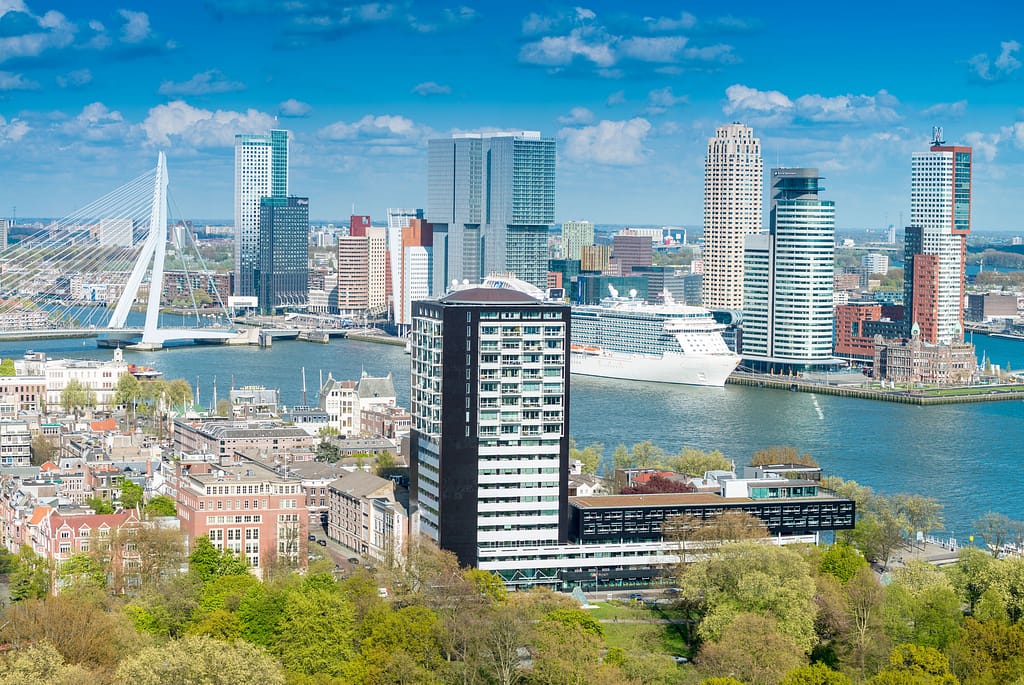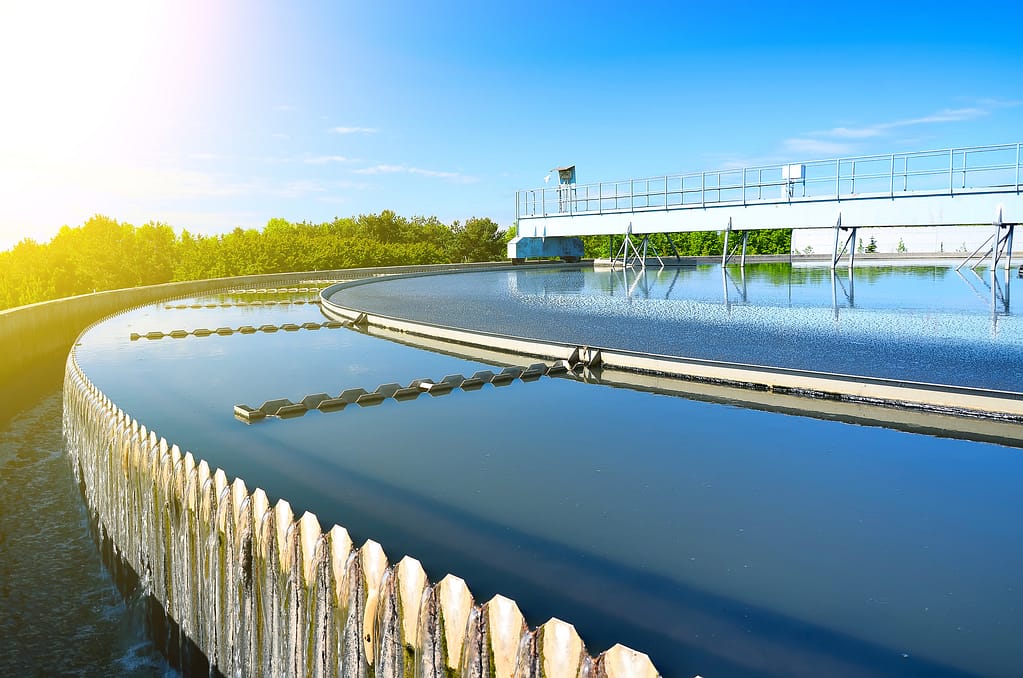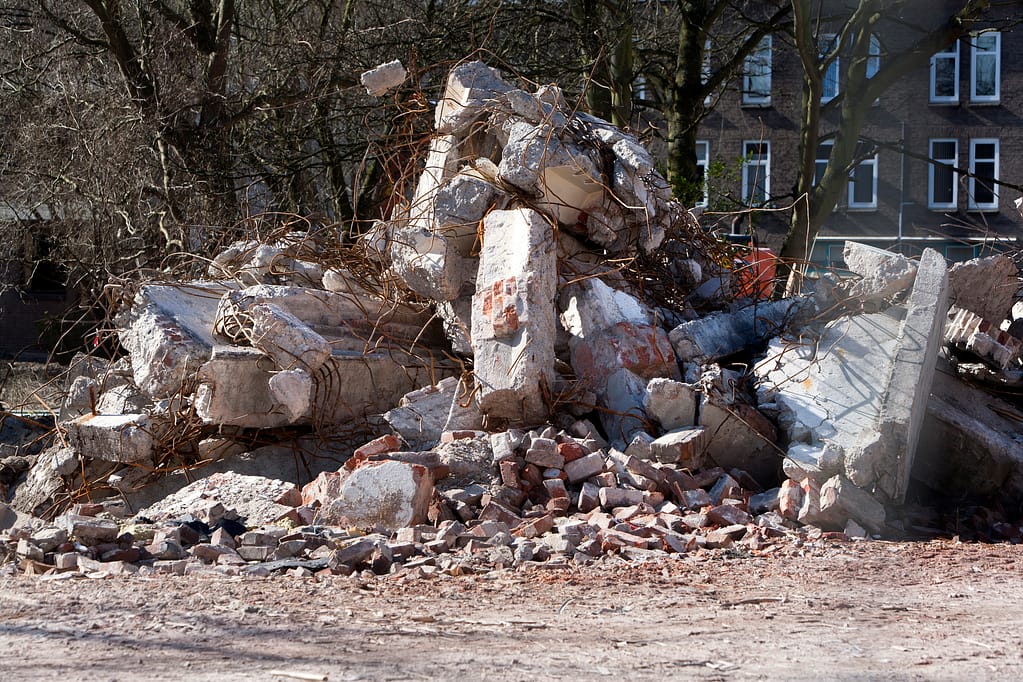There’s a popular expression around the city of Rotterdam that describes trying in vain to address symptoms while ignoring the root cause of a problem: “dweilen met de kraan open”, which roughly translates to “mopping up while the tap is still running”.
This sensible, pragmatic approach lies at the heart of Rotterdam’s leadership in the transition to a circular economy, as the city strives to reduce primary raw material use by 50% by 2030, while creating 3,500 to 7,000 circular jobs.
In the case of the city’s medical facilities, running taps have quite literally been highlighted as an opportunity for circularity. Metabolic’s 2018 Circular Rotterdam report, which assessed healthcare as one of four areas of focus, noted that one wasteful aspect of hospitals is the need to flush all water points weekly to prevent legionella outbreaks. The solution? Simply reduce the number of faucets so less water is flushed.
The report collated dozens of solutions like this along with a comprehensive analysis of material streams, which in turn helped inform Rotterdam Circulair’s 2019-2023 Circularity Programme, which committed to moving to a more circular approach to healthcare and the other three focus areas of construction, organic waste streams, and consumer goods.
Some solutions address one focus area in particular, while others address many at once. Since the plan’s release, the coronavirus pandemic in particular has shown how a challenge in one sector, such as healthcare, can quickly overwhelm entire economies and require system-wide action to address.

Metabolic Sustainability Consultant Chandar van der Zande says there are strong parallels between managing the pandemic and the challenges of transitioning to a circular economy.
“Whether we run up against the planetary boundaries or the core capacities of our healthcare institutions, we need to reduce the curve to stop these exponential growth curves,” he says. “That’s not only for the COVID crisis but also for healthcare capacity generally, for biodiversity loss, and for CO2 emissions.”
Turning contamination into power generation
Rotterdam is moving ahead with some of the suggestions made in the Metabolic report, such as rolling out medicine filters across city hospitals. Introducing the plan in 2019, Rotterdam’s Alderman for Sustainability, Air Quality and the Energy Transition Arno Bonte noted that healthcare was not the most prominent part of the city’s circular ambitions, but there are opportunities for real impacts. “It may be a smaller waste stream, but it is a serious one,” he said. “We are working with hospitals to filter medicine residues from wastewater and to use them to generate energy.”
The wastewater of hospitals contains concentrated amounts of medicine waste, hormone disruptors, and cleaning agents. Medicine filters, such as that developed by Amsterdam-based Pharmafilter, break down waste products from hospital wards, filtering out harmful substances in wastewater. The resulting solid waste is then broken down further by microorganisms through anaerobic digestion, with the unit powering itself from the biogas that results, feeding energy back into the hospital grid.
Rotterdam’s 2019-2023 Circularity Programme aims to roll these out across the city’s healthcare operators, by highlighting the examples of pioneers already uptaking such solutions, including Rotterdam’s Erasmus University Medical Center (Erasmus MC). Erasmus MC deployed the Pharmafilter in March 2019, with the hospital highlighting other advantages such fewer logistical movements in the hospital to dispose of waste.

Materials traced back to their origins
Erasmus MC is setting the pace for circularity not just in innovations specific to healthcare, but in construction too, showing how system change requires solutions that benefit multiple sectors at once. The hospital is making use of materials passports which identify useful materials in buildings, to facilitate tendering for waste materials in construction and demolition work. In one example, Erasmus MC partnered with Rotterdam’s biggest housing corporation Woonstad. Among the waste materials extracted from an old building are hundreds of toilets set to enjoy a new lease of life in housing developments.
Metabolic’s built environment lead, Merlijn Blok, who spearheaded an urban mining analysis of Rotterdam, says there are enormous opportunities for the construction sector. “According to our assessment, Rotterdam’s major demolition and renovation projects between 2020 to 2026 could generate 817,000 tons of potentially useful materials,” he said. “That includes raw materials such as concrete, wood, and steel, but also building products such as frames, doors, and washbasins.”

To make such a practice the norm rather than something only feasible for the largest major projects, Blok suggests the establishment of a centralised construction hub. “Disassembling, processing and then reusing construction materials at a new destination is a considerable logistical task, and the profitability of doing so depends on the efficiency of the process,” he said. “A centralised hub allows specific supply chains to bridge this logistical gap and explore new business cases for material reuse, allowing for the collection and restoration of an increasing amount of materials.”
Products and materials in the hub could be refurbished to be used again for their original function, or repurposed for something new, according to Blok. “For instance, steel roof sheets harvested during demolition can then be repurposed as partition walls in new buildings,” he said.
Food as preventative treatment
Ultimately though, the impacts of a building are largely a symptom of how many people need to use it. In the case of healthcare, that’s a matter of how healthy people are in the first place. If a population is healthier, fewer people need to go to facilities in the first place, in turn consuming less medicine, food, and energy. Research even shows that if hospitals serve healthier food, patients don’t need to stay as long.
In this sense, the healthcare aspect of Rotterdam’s circular plan neatly intersects with the organic stream focus. Metabolic green building consultant Nico Schouten has been working with city authorities on workshops looking at healthier, more sustainable food systems to feed Rotterdam. “Food plays a central role in society, and is not only a life necessity but also represents an opportunity to address a range of problems, from food waste to obesity,” he said.
The workshops drew on the systems thinking approach of the iceberg model, which notes that only ten percent of an iceberg sticks above the sea, while the rest is hidden underwater. “However that 90% is the mass that the ocean influences and thus determines the behavior of the iceberg,” Schouten said. “So on the surface level, someone might for example get sick, and they might try to treat the symptoms with medicine. But if you look below the surface, you can see that there is a pattern that indicates why someone is getting sick – perhaps their diet is part of the reason. That in turn may be due to a structural problem: a habit of heating unhealthy food when stressed at work, or healthy food being inconvenient to access. These factors can be all lying below the surface of why someone keeps getting sick. Then below even that are the beliefs and values expectations which allow the structural problem to remain, for example a job is so important to someone’s identity that they get stressed at work, that getting rest is a sign of laziness, or that healthy eating is too expensive.”

Schouten said that three goals to come out of the workshops are: to improve residents’ knowledge about healthy eating, increase the appreciation of local and seasonal foods, and to encourage a plant-based diet. These would not only improve wellbeing and the flow-on benefit of reducing the impact of healthcare systems: they also reduce the direct environmental impact of the food system by reducing wastage. According to Metabolic’s 2018 assessment, 82,300 tons of household organic waste was produced in Rotterdam in 2015, of which 38,400 tons could have been prevented.
Tracking consumption to its source
For van der Zande, there are clear links between wellbeing and circularity.
“When a city works to become circular, they understand that they have to take a broader perspective on what it means to be a healthy, livable city,” he says.
“The outcome of that can be that reducing the impact of health care isn’t just about getting better use of materials from new technology, it’s reducing the amount of people getting sick.”
As Rotterdam works to hit its circularity targets, one key question is how can it track its progress in tackling not just the symptoms of consumption, but the source of the impacts. Metabolic has been working with Rotterdam authorities to help them develop indicators to track their progress towards goals such as the ambition to reduce raw material consumption by 50% by 2030. According to van der Zande, this is easier to track on a country level with clear national boundaries, but less straightforward with the fluid boundaries of a city that melds into the surrounding landscape.
“As a city, you need to take responsibility for goods and services that might be consumed in the city, but are produced elsewhere,” he said. “What we realised is if you know what waste a city creates, you can also back-calculate what the inputs are. And through that innovation, we were able to now give them insight on their material footprint over time, not only see their direct material consumption. One kilogram of steel isn’t just one kilogram of steel: it has a bunch of other materials embedded in it as part of its production process. So one kilogram of steel represents one and a half kilogram of raw material consumption.”
After all, there’s no point in just treating the symptom of a problem. Or as Rotterdammers like to say: there’s no sense in mopping up if the tap is still running.




